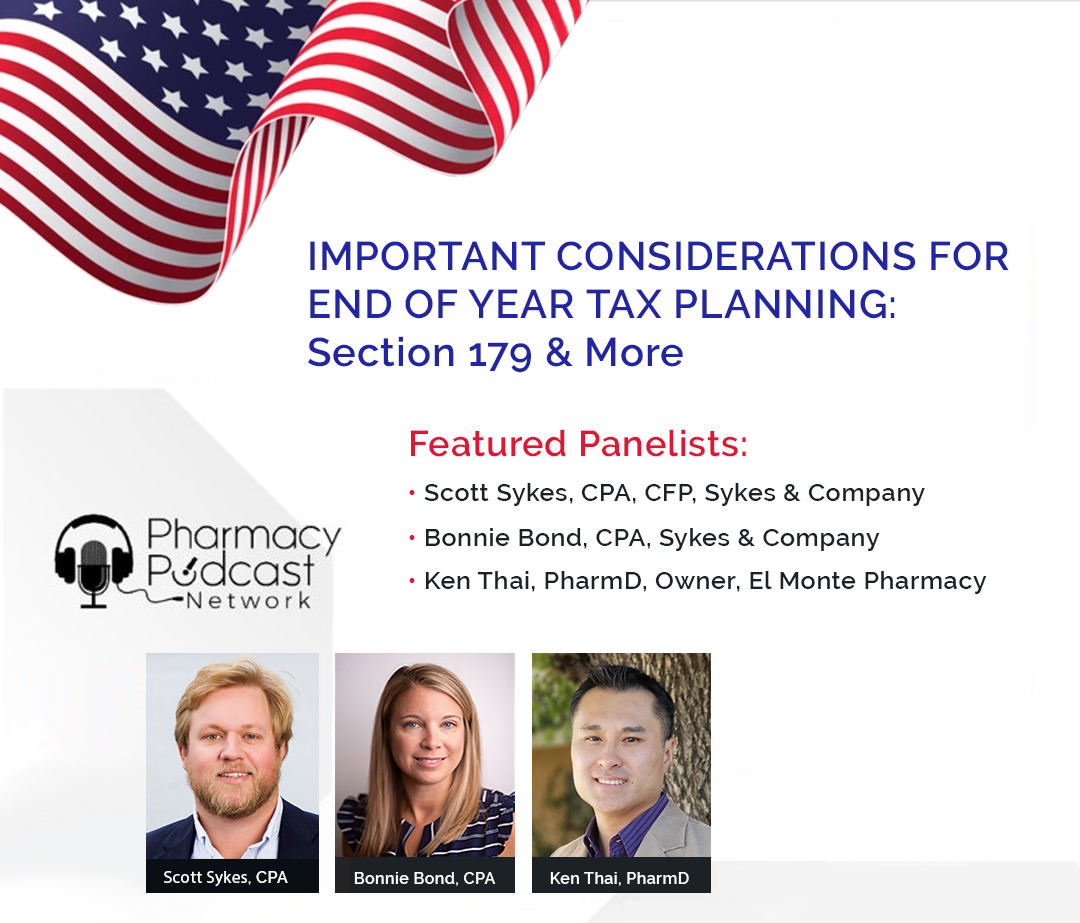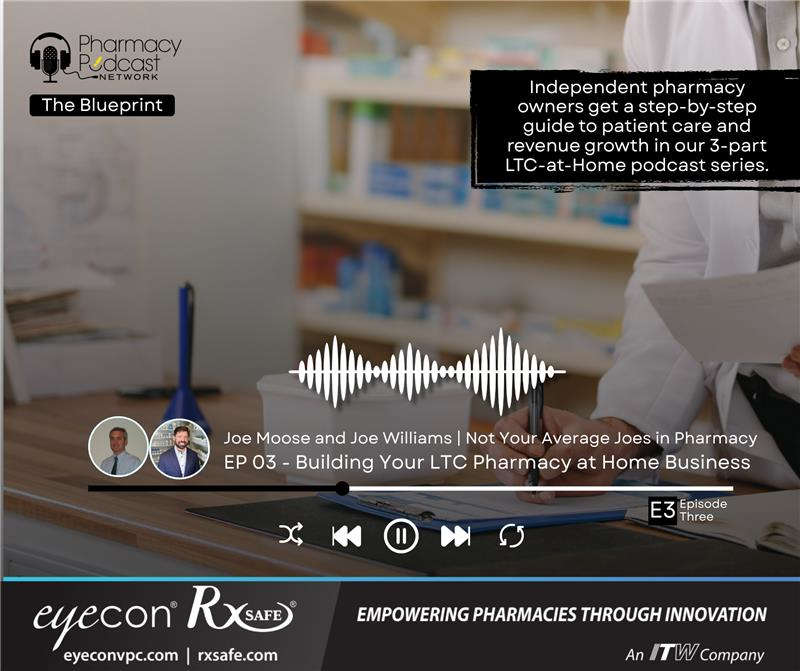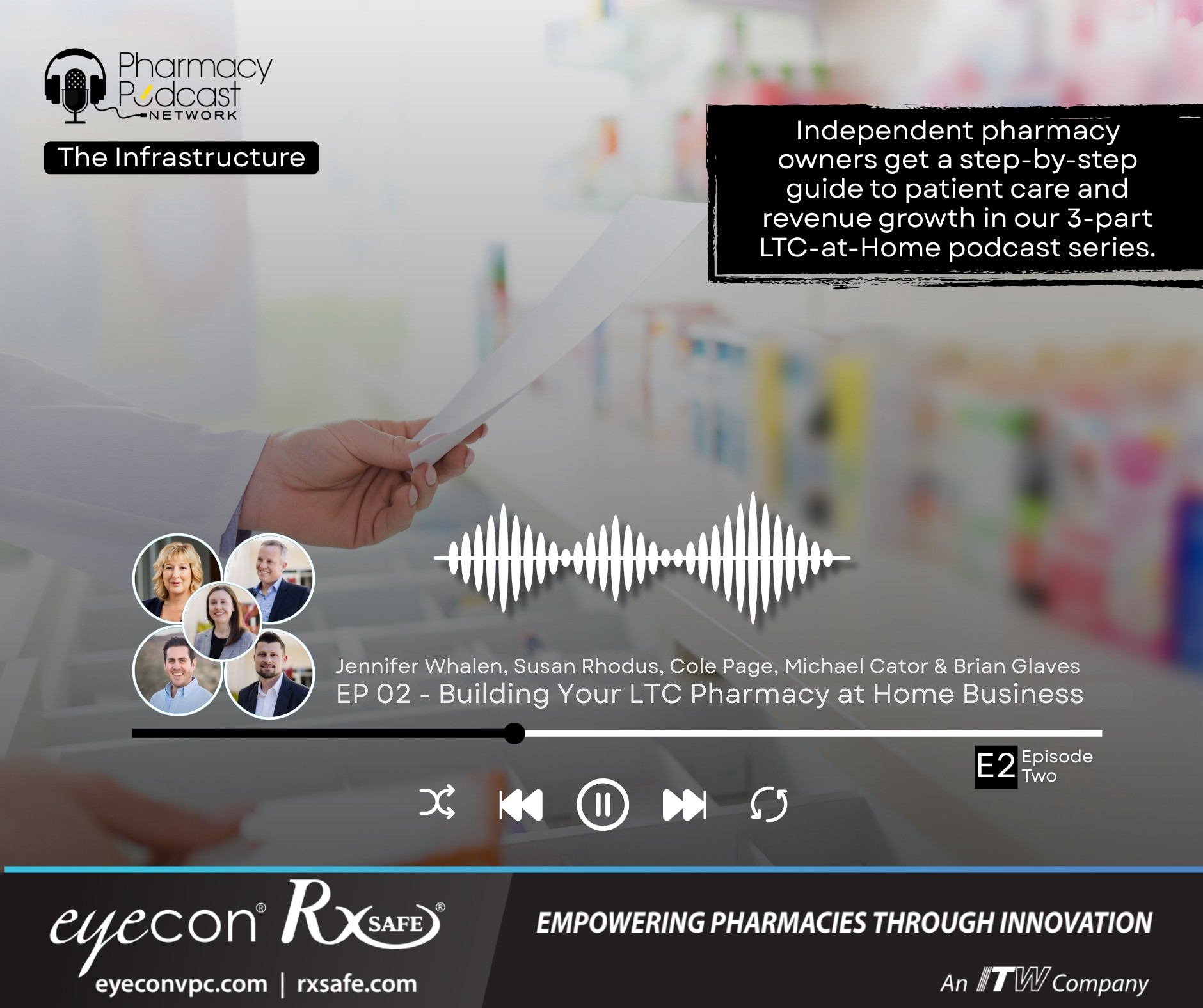RxSafe and The Pharmacy Podcast Network recently hosted the webinar, "Diabetes Care & The Impact of Adherence," as part of the Beyond the Vial, Transform Your Pharmacy Series.
We were fortunate to have a quartet of diabetes management experts, pharmacists, and researchers who shared their expertise on diabetes management. The RxSafe team was joined by CureMed Pharmacy’s President and owner Ghada Abukuwaik, clinical pharmacist and holistic health coach Dr. Ani Rostomyan, DiversifyRx CEO Lisa Faast, and Silver Fern Healthcare Chief Scientific Officer Dr. Garry Welch. Below is a brief webinar recap.
The statistics show a sobering fact.
In the United States today, 1 in 10, or around 34.2 million people have diabetes.
There are 88 million Americans (1 in 3) with prediabetes, a condition where blood sugar levels are higher than normal, but not high enough to be diagnosed as diabetes.

Click the video above to watch the webinar play.
These critical numbers only underscore the need to recognize the important role independent pharmacists play in serving their communities and the positive impact they can have, as demonstrated by their leading role in the vaccination effort against COVID-19.
Community pharmacists are the most accessible and most frequently visited members of the healthcare team according to the National Institutes of Health.
With such a readily available resource, how does this explain the number of diabetics who are non-adherent?
Diabetes Non-Adherence Reasons
Dr. Rostomyan stresses that the lack of adherence is not merely a problem of throwing enough medications at the problem, saying, “More medications doesn’t mean better care.”
“We need to work on the mindset first before we even interview patients about their health habits, medication, adherence, and lifestyle,” she adds.
Every patient is different and has unique needs. But, with so little time available to actually talk to patients, it is increasingly difficult to meet patient needs. Dr. Rostomyan came to the realization that the care isn’t really designed around patients because of time constraints.
“We have to accommodate our patients in the 15 minute increments that we have for them, and it's not working, and I feel like sometimes we do make the same approach consistently and expect different results, and it's just not happening,” Dr. Rostomyan adds.

What is the Patient’s Story?
Dr. Welch agrees that medications are not the be-all and end-all of solving the non-adherence question, saying, “We need to unpack that patient’s story, we need to do it in smart digital ways and get that information into the treatment plan and, and disrupt the whole healthcare system so we have different people with different skills that can help the patient, and it's a blend of digital and in-person.”
Rather than just managing medications, a multipronged approach should be considered in patient care.
“We've got these extended teams that can include pharmacists, and community health workers, and health coaches, and nurses, and we've also got a loosening up of the regulations so people can get paid to do things that they were locked out from doing, and so this is a beautiful unlocking of the system, “ Dr. Welch says.
“When you look at the patient's story, they've got a family that they're embedded in. You need to find out what are they doing. Where are they getting stuck? And that unlocks a lot of things in terms of psycho-social issues and social determinants,” Dr. Welch says.
Approaches to Patient Adherence
Ghada Abukuwaik, PharmD, who offers a diabetes education program at her pharmacy, believes that using motivational interviewing and adherence coaching can play a larger role than ‘standard counseling’ when dealing with diabetes patients.
There are many barriers to achieving adherence and Abukuwaik says that while medications do help, minimizing the number of medications the patient has to take will sometimes make a large impact on a patient.
Then there are other barriers, such as lack of finances, and physical limitations, such as transportation issues that may prevent patients from gaining access to their medications.
While believing that all these challenges can prevent patients from being adherent, Abukuwaik is a believer in the benefits that pharmacy automation can afford her patients.
“There are so many challenges in adherence, but mainly what we've found in our pharmacy, is synchronization and compliance packaging through the RapidPakRx makes the adherence really, really high and improves the issues with our patients,” Abukuwaik says.
Having a compliance packaging program and following-up with the patient through monthly calls helps in two ways:
- The pharmacist knows exactly where the patient is in terms of being compliant and taking medications regularly.
- A compliance packaging program allows for follow-ups to check for any kinds of side-effects.
Understanding the Consequences of Non-Adherence
Dr. Lisa Faast of DiversifyRx explains that a large part of patients’ non-adherence stems from not grasping the gravity of not taking their medications and the future penalties that come with it.
“I think when it comes to adherence, there's this issue with patients that they know it's serious, but they don't really, truly understand the consequences,” she says.
While not taking medications can be catastrophic to long term health, patients may struggle with other, no-less serious problems, but also more immediate problems, such as putting food on the table or being able to afford medications.
“As a patient, and I know in my own life, our concerns are much more short term. Most of us don't invest for the long term in our finances, much less in our health, and I think there's this dichotomy between patient education and awareness and really, truly understanding and internalizing the information,” Dr. Faast says.
Humans, By Nature, Are Non-Compliant
Dr. Rostomyan goes deeper into the nature of non-compliance.
“We all are non-compliant, even me. I don't like taking medications. I know I can barely handle a seven or 10-day course of prescription for acute conditions, if I'm given that,” she says.
“But imagine the daily life of patients who have to take seven to 10 medications, and they have to be compliant, and they're questioned by their doctors, by nurses, and the pharmacist on top of it asking questions,“ she continues.
When Patients Feels Punished
“Patients feel punished,” says Dr. Rostomyan. Their doctors may say something like, "If you don't bring your A1C to this percent, I'm going to have to start you on insulin."
“That statement may feel like a verdict to patients and they go into this denial mode saying, ‘You know what? In that case, I'm not taking anything’,” Dr. Rostomyan explains.
Patients need to feel encouraged and not judged, based on how well they are doing.
Self-Management Tools
Dr. Welch, who develops digital tools to assess self-management behaviors, combines this information with other issues to paint a better picture of the patient.
“We explore other psycho-social issues like depression, or other behavioral health issues, or social determinants, the things that are going on at home, the tough things about not enough money, or transportation, or there's legal problems, or maybe there's some racism,” explains Dr. Welch.
Non-traditional Services for Diabetes Care
“No one likes to take medications,” says Abukuwaik.
Instead, a collaborative approach to patient care has proven to work best in Abukuwaik’s experience in dealing with her diabetic patients.
Instead of just medications, Abukuwaik hosts community events that feature weight loss programs and healthy food to get people to participate. “When people hear that the event is going to be about diabetes, they wouldn’t come, but if they hear that there’s going to be some (kind of) dancing, a dietician who’s going to talk about this kind of food, the attendance goes up from 10% to 50%,” she explains.
Rewarding Good Behavior in Patients
While giving patients positive feedback helps, incentivizing them with tangible rewards is better.
Dr. Rostomyan explains, “We're human. We don't care if we're not going to die in 30 years from heart attack, but we care what can we get today for our good behavior.”
“Copays can be made lower as an incentive for lower A1C or BMI numbers,” she continues.
“But again, a multidisciplinary team is the way to go with chronic disease. There's no more doctor-and-patient duo relationship. That's not working anymore. It's many people involved in one patient's care,” Dr. Rostomyan concludes.
Prevention is Better than Cure
RxSafe Founder and CEO Bill Holmes stresses that while all of these management strategies can be effective, there is nothing better than prevention. “We talk about education, education, education. I think too often we've missed a piece called prevention,” Holmes says.
“And the story here is it appears from the research that if people were to be careful about their diet knowing what is potentially in their DNA, we might avoid having millions more people become diabetic,” Holmes concludes.
To learn more about diabetes management programs and research, or to reach out to any of our panelists, contact us or leave a comment below.
To learn more about RxSafe's adherence packaging products and how they can help your patients become more adherent, visit our product page.







.png)


